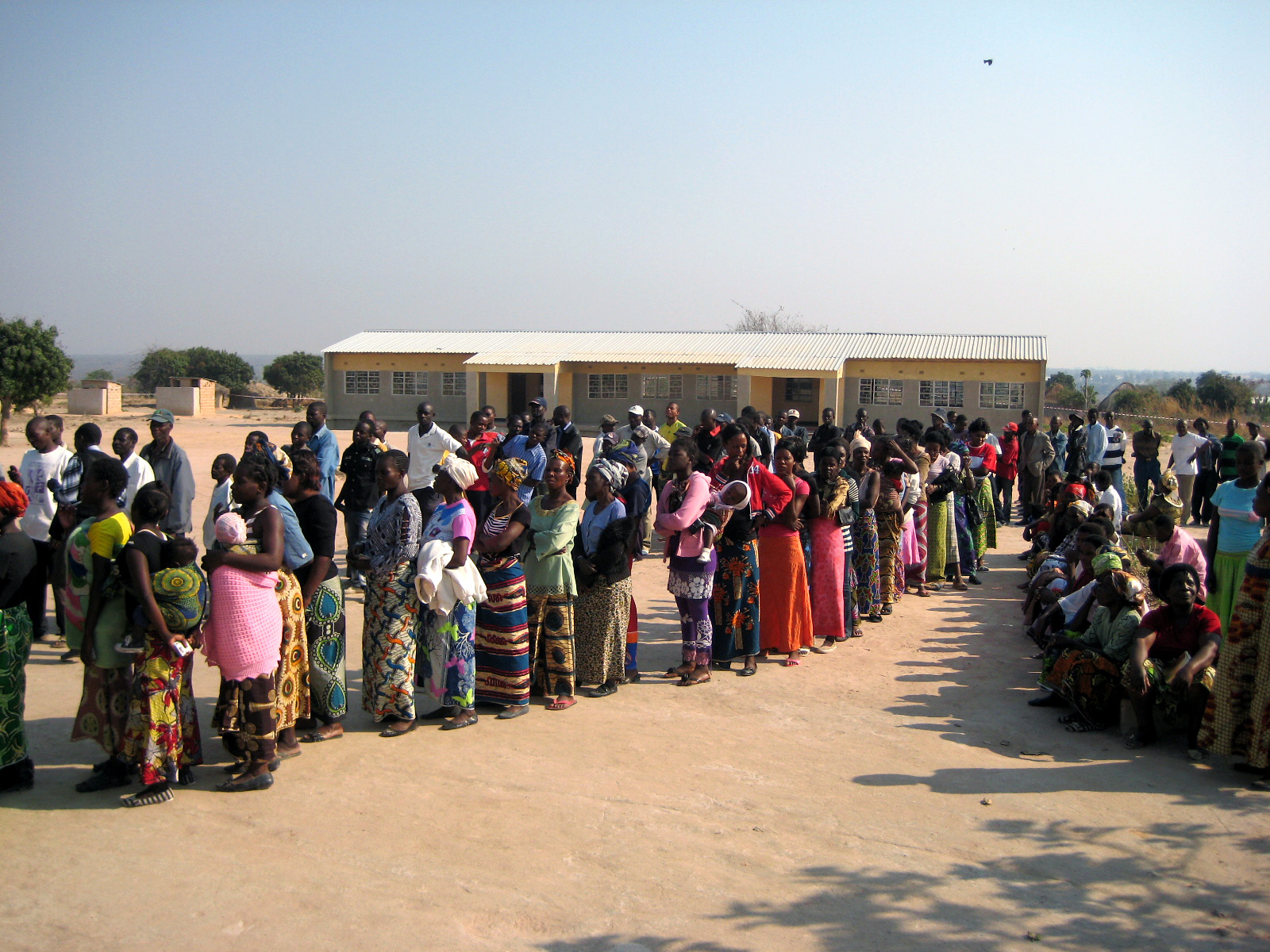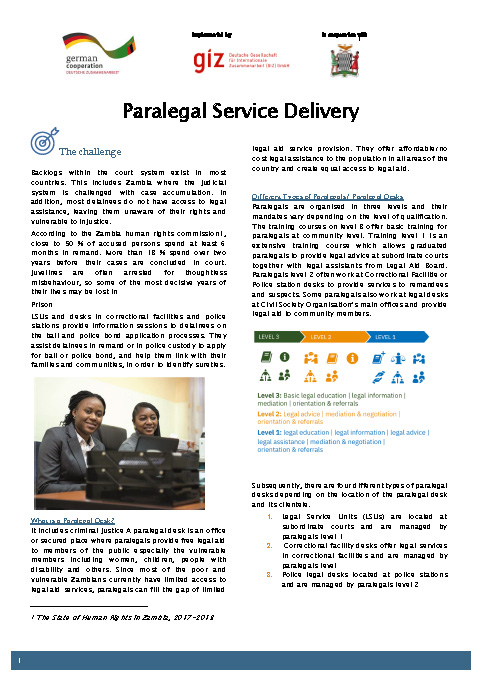Voters in the 2011 presidential elections in Zambia
Copyright© Commonwealth/Liesl Harewood, via flickr, CC BY-NC 2.0
Core area “Peaceful and inclusive societies” Transparency and participation
Good financial governance
Germany may not be a bilateral creditor, yet it has a strategic interest in Zambia's debt being restructured in the near future. In order to underpin measures to overcome the debt crisis, support is being provided for the reforms of public financial management. Together with the European Union, and in future also together with the US Agency for International Development, Germany is providing development cooperation support to assist the Zambian government in its efforts to make the public financial system more effective, accountable and transparent, and increase the state's own revenues.
A central focus is on strengthening transparency and accountability so as to ensure that public funds are used properly and efficiently. The aim is to create more financial scope despite high levels of debt so that development-oriented policies can be implemented and social spending increased.
Germany is supporting the relevant Zambian ministries and the tax authorities in bringing greater transparency and efficiency to budget planning and implementation, increasing tax revenues, reforming public contracting so as to make corruption more difficult, and driving forward the process of fiscal decentralisation.
Public participation
As part of its activities in the field of public participation, Germany, together with the EU, is involved in efforts to empower civil society to effectively demand in particular more transparency, accountability and anti-corruption efforts. In addition, public institutions are receiving support for creating fair conditions that allow everyone in Zambia to participate. Selected civil society organisations are also receiving support so they can become more professional in their work and contribute effectively to reform and legislative processes as participants representing the interests of the rest of society.
Again together with the EU, efforts are being made to improve the access of women and minors, in particular, to justice and legal assistance. As a result, the number of people receiving legal aid in the provinces targeted rose from 9,335 per year in 2017 to 16,280 in 2022. Overall, a total of 129,000 people benefited from legal aid in the period between June 2017 and July 2023. When, for example, people in pre-trial custody receive this kind of support, the result is often less time spent in detention.
Decentralisation
The new Zambian government has set itself the goal of transferring more tasks to local authority level and increasingly delivering government services at local level. This is making it easier to deliver effective responsive services for people and enhance political participation.
Germany is supporting Zambia's efforts to implement its policy of decentralisation. At the national level, the relevant public authorities are receiving advice on managing the reform process and fostering municipal administration. Efforts are being undertaken to build municipalities' capacities for strategic planning, local service delivery and financial management, so that they are able to make the planning of local development measures more target-oriented and implement them more effectively. Support is also being provided for the expansion of municipal infrastructure (roads, bus stations, markets) and the modernisation of an administrative college that provides training and upskilling for municipal officials.
A number of districts in Southern Province that are particularly feeling the effects of climate change are being assisted in making adaptation plans and strengthening their infrastructure. This is to ensure that basic public services can still be delivered even under extreme weather conditions.
Strengthening the rights of women and girls
Another focus of cooperation is on promoting the rights of women and girls. The rights of women and girls are adversely affected above all by widespread violence against women, by teenage pregnancies and by especially high HIV infection rates among girls and young women. That is why Germany is engaged in development cooperation measures that strengthen reproductive rights and HIV prevention. Interactive approaches (External link) are used to educate girls and young women about these issues.
As at: 30/10/2023


